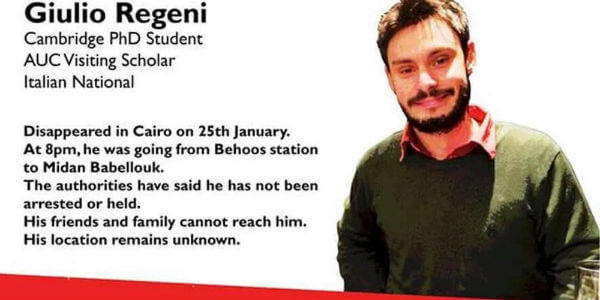Let’s take a moment to think about the ultimate strangeness of our American world. In recent months, Donald Trump and Ted Cruz have offered a range of hair-raising suggestions: as president, one or the other of them might order the U.S. military and the CIA to commit acts that would include the waterboarding of terror suspects (or “a hell of a lot worse”), the killing of the relatives of terrorists, and the carpet bombing of parts of Syria. All of these would, legally speaking, be war crimes. This has caused shock among many Americans in quite established quarters who have decried the possibility of such a president, suggesting that the two of them are calling for outright illegal acts, actual “war crimes,” and that the U.S. military and others would be justified in rejecting such orders. In this context, for instance, CIA Director John Brennan recently made it clear that no Agency operative under his command would ever waterboard a suspect in response to orders of such a nature from a future president. (“I will not agree to carry out some of these tactics and techniques I’ve heard bandied about because this institution needs to endure.”)
These acts, in other words, are considered beyond the pale when Donald Trump suggests them, but here’s the strangeness of it all: what The Donald is only mouthing off about, a perfectly real American president (and vice president and secretary of defense, and so on) actually did. Among other things, under the euphemistic term “enhanced interrogation techniques,” they ordered the CIA to use classic torture practices including waterboarding (which, in blunter times, had been known as “the water torture”). They also let the U.S. military loose to torture and abuse prisoners in their custody. They green-lighted the CIA to kidnap terror suspects (who sometimes turned out to be perfectly innocent people) off the streets of cities around the world, as well as from the backlands of the planet, and transported them to the prisons of some of the worst torture regimes or to secret detention centers (“black sites”) the CIA was allowed to set up in compliant countries. In other words, a perfectly real administration ordered and oversaw perfectly real crimes. (Its top officials even reportedly had torture techniques demonstrated to them in the White House.)
At the time, the CIA fulfilled its orders to a T and without complaint. A lone CIA officer spoke out publicly in opposition to such a program and was jailed for disclosing classified information to a journalist. (He would be the only CIA official to go to jail for the Agency’s acts of torture.) At places like Abu Ghraib, the military similarly carried out its orders without significant complaint or resistance. The mainstream media generally adopted the euphemism “enhanced interrogation techniques” or “harsh techniques” in its reporting — no “torture” or “war crimes” for them then. And back in the post-2001 years, John Brennan, then deputy executive director of the CIA, didn’t offer a peep of protest about what he surely knew was going on in his own agency. In 2014, in fact, as its director he actually defended such torture practices for producing “intelligence that helped thwart attack plans, capture terrorists, and save lives.” In addition, none of those who ordered or oversaw torture and other criminal behavior (a number of whom would sell their memoirs for millions of dollars) suffered in the slightest for the acts that were performed on their watch and at their behest.
To sum up: when Donald Trump says such things it’s a future nightmare to be called by its rightful name and denounced, as well as rejected and resisted by military and intelligence officials. When an American president and his top officials actually did such things, however, it was another story entirely. Today, TomDispatch regular Rebecca Gordon catches the nightmarish quality of those years, now largely buried, in the grim case of a single mistreated human being. It should make Americans shudder. She has also just published a new book, American Nuremberg: The U.S. Officials Who Should Stand Trial for Post-9/11 War Crimes, that couldn’t be more relevant. It’s a must-read for a country conveniently without a memory. Tom Engelhardt
The Al-Qaeda leader who wasn’t
The shameful ordeal of Abu Zubaydah
By Rebecca Gordon
The allegations against the man were serious indeed.
* Donald Rumsfeld said he was “if not the number two, very close to the number two person” in al-Qaeda.
* The Central Intelligence Agency informed Assistant Attorney General Jay Bybee that he “served as Usama Bin Laden’s senior lieutenant. In that capacity, he has managed a network of training camps… He also acted as al-Qaeda’s coordinator of external contacts and foreign communications.”
* CIA Director Michael Hayden would tell the press in 2008 that 25% of all the information his agency had gathered about al-Qaeda from human sources “originated” with one other detainee and him.
* George W. Bush would use his case to justify the CIA’s “enhanced interrogation program,” claiming that “he had run a terrorist camp in Afghanistan where some of the 9/11 hijackers trained” and that “he helped smuggle al-Qaeda leaders out of Afghanistan” so they would not be captured by U.S. military forces.
None of it was true.
And even if it had been true, what the CIA did to Abu Zubaydah — with the knowledge and approval of the highest government officials — is a prime example of the kind of still-unpunished crimes that officials like Dick Cheney, George Bush, and Donald Rumsfeld committed in the so-called Global War on Terror.
Continue reading →






